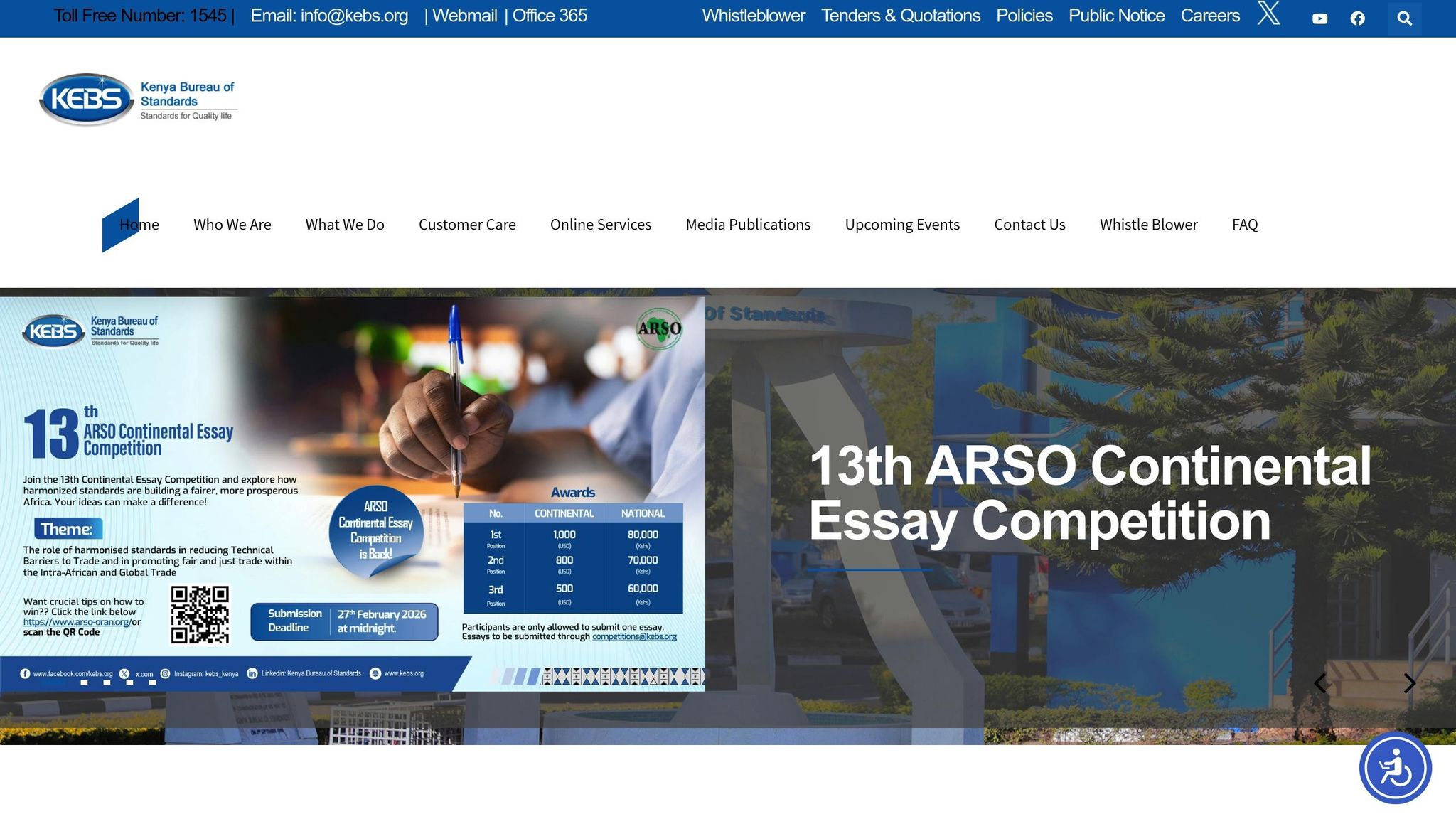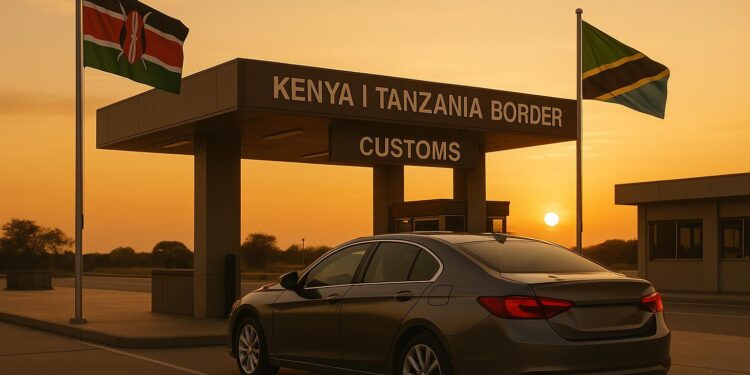Kenya’s new vehicle import rules, effective July 2025, focus on stricter emissions standards, modern safety requirements, and incentives for electric vehicles (EVs). These changes could impact Tanzania’s policies, especially since Kenya is a key player in East Africa’s automotive market. While Kenya prioritizes cleaner and newer vehicles with higher taxes, Tanzania’s current approach emphasizes affordability, allowing older vehicles but with fewer environmental considerations. Tanzanian consumers and dealers may face shifts in pricing, availability, and market trends if similar regulations are adopted.
Key points to know:
- Kenya: Limits vehicle imports to 8 years old, increased import duties (35%), and offers reduced taxes for EVs.
- Tanzania: No strict age limits, standard taxes apply to all vehicles, and no EV-specific incentives yet.
- Impact: Higher costs in Kenya improve vehicle quality and sustainability, while Tanzania’s leniency risks pollution and safety concerns.
Quick Comparison:
| Aspect | Kenya | Tanzania |
|---|---|---|
| Vehicle Age Limit | 8 years | No strict limit |
| Import Duties | 35% | Base duties with surcharges |
| EV Incentives | Lower taxes for EVs | No specific EV incentives |
| Focus | Newer, cleaner vehicles | Affordability |
Tanzania may gradually align with Kenya’s policies to balance affordability with environmental and trade priorities.
Used Cars Importation Rules [KEBS New Regulations Effective Jan 2025]

1. Kenya’s Import Rules
Kenya has revised its vehicle import regulations, placing a strong emphasis on modern safety and emission standards. These updates aim to ensure imported vehicles align with current environmental goals while meeting safety benchmarks. Here’s a closer look at the key elements of the updated framework.
Vehicle Age Limits
To maintain a dependable and modern vehicle fleet, Kenya has set restrictions on the age of imported vehicles. By limiting the import of older vehicles, the policy aims to minimize maintenance costs and reduce environmental impact. However, specific age limits have not been detailed.
Taxation and Fees
The revised rules bring changes to import duties and fees, balancing revenue needs with environmental priorities. Importers must now complete additional verification steps before shipping vehicles, ensuring they meet the required standards before entering the country.
Inspection Requirements
Every vehicle imported into Kenya must pass a thorough inspection before entry. These inspections focus on confirming the vehicle’s safety features, emissions compliance, and overall condition. The goal is to ensure all vehicles meet the updated regulatory standards.
Electric Vehicle (EV) Incentives
Kenya is taking steps to encourage the adoption of electric vehicles (EVs) by offering incentives that reduce certain import costs and speed up processing for EVs. These efforts are part of a broader push to support cleaner transportation, including expanding the country’s charging infrastructure. Kenya’s approach could serve as an example for neighboring countries, such as Tanzania, to follow in the future.
2. Tanzania’s Import Rules
Tanzania, like Kenya, has its own set of regulations for vehicle imports. These rules aim to strike a balance between affordability and safety, making vehicle ownership accessible while maintaining quality standards.
Vehicle Age Limits
To ensure a mix of quality and affordability, Tanzania enforces age restrictions on imported vehicles. These limits apply to both private and commercial vehicles, helping to maintain safety and performance standards across the board.
Taxation and Fees
Tanzania’s tax system for imported vehicles is based on engine size and vehicle type. Duties and additional levies, such as value-added and excise taxes, are structured to not only raise revenue but also promote the import of fuel-efficient vehicles. Importers are required to complete pre-shipment verification procedures as part of the process.
Inspection Requirements
Every imported vehicle must go through inspections both before and after its arrival in Tanzania. Authorized agents handle these checks to confirm that the vehicle’s condition matches its documentation and that it complies with essential safety standards.
Electric Vehicle (EV) Incentives
At present, Tanzania does not offer specific incentives for electric vehicle imports. EVs are treated the same as traditional vehicles when it comes to import duties and fees. While the government has expressed interest in cleaner transportation options, no formal measures to support EV imports have been introduced yet.
sbb-itb-d9186c2
Benefits and Drawbacks
Kenya and Tanzania have taken different regulatory paths in managing vehicle imports, each with its own set of pros and cons.
Kenya’s updated regulations, effective July 2025, introduce a CRSP system aimed at improving pricing accuracy. This system expands coverage to over 5,200 vehicle models – up from around 3,000 in 2019 – and bases pricing on actual invoice values rather than estimates. However, these changes come with increased import duties (from 25% to 35%) and excise duties (from 30% to 35%), leading to higher vehicle costs. While this raises government revenue, it also makes vehicle ownership less affordable for many.
Tanzania, on the other hand, focuses on affordability by avoiding strict age limits for imported vehicles. This makes it easier for lower-income buyers to own cars. However, the lenient approach allows older, less environmentally friendly vehicles into the market, raising concerns about pollution and public health.
Environmental policies also show stark differences. Kenya’s excise duty structure actively promotes cleaner transportation, taxing electric vehicles (EVs) at 10%, compared to 20–35% for internal combustion engine (ICE) vehicles. Tanzania applies uniform duties regardless of environmental impact, missing opportunities to encourage cleaner technologies. These differing stances on EV incentives influence both environmental outcomes and trade dynamics.
Cross-border trade adds another layer of complexity. With used car imports making up 85% of the 2.2 million vehicles on East African roads, the region loses about $2 billion annually in foreign exchange. Kenya’s strict 8-year age limit aligns with East African Community recommendations to encourage local assembly, while Tanzania’s more relaxed policies clash with regional harmonization efforts.
Here’s a quick comparison of the two approaches:
| Aspect | Kenya’s Regulations | Tanzania’s Regulations |
|---|---|---|
| Vehicle Age Limit | 8 years from first registration | No strict limit; additional taxes for older vehicles |
| Tax Transparency | CRSP system covering over 5,200 models | Traditional methods |
| Import Duties | 35% (up from 25% in 2019) | Base duties with surcharges on older vehicles |
| EV Incentives | 10% excise duty for EVs vs. 20–35% for ICE | No specific EV incentives |
| Environmental Impact | Favors newer, cleaner vehicles | Allows older, more polluting vehicles |
| Market Access | Higher costs but better quality standards | Lower costs with a broader range of vehicle options |
Looking ahead, the stakes are high. Projections suggest the global vehicle fleet could double by 2050, with 90% of that growth happening in low- and middle-income countries like Tanzania. Additionally, the transportation sector currently accounts for nearly a quarter of all energy-related CO₂ emissions worldwide. Kenya’s regulations aim to balance quality and sustainability, albeit at a higher cost to consumers. Meanwhile, Tanzania’s emphasis on affordability risks compounding environmental and safety challenges over time.
Conclusion
Kenya’s recent regulatory changes highlight a move toward stricter import standards and increased accountability for environmental impact. These developments could serve as a blueprint for Tanzania to consider in the future, reflecting a market that’s shifting quickly.
For Tanzanian dealers and importers, these updates hint at a need to prepare for greater regulatory alignment across borders. This could mean adjusting policies, diversifying inventory with newer vehicle models, or even exploring electric vehicle (EV) options as market dynamics evolve. Such changes signal a broader transformation in regional trade practices.
Kenya’s lower duties on cleaner vehicles may give EVs a competitive edge, a trend that could influence Tanzania as its vehicle market continues to grow. For Tanzanian policymakers, the challenge lies in balancing affordability with environmental and trade priorities.
Looking forward, stakeholders should anticipate gradual policy shifts. Kenya’s step-by-step approach to regulatory updates suggests Tanzanian businesses will have time to adapt – whether by upgrading inventories, exploring creative financing solutions, or gaining expertise in the EV sector.
With transportation contributing nearly a quarter of global CO₂ emissions, stricter environmental standards are becoming economic necessities in East Africa. For Tanzania, the balancing act between affordability and sustainability will likely grow in importance, making Kenya’s regulatory framework a valuable indicator of what’s to come.
FAQs
How could Kenya’s updated import regulations impact Tanzania’s automotive industry?
Kenya has recently implemented stricter vehicle import regulations, including an increase in import duties from 25% to 35% and tighter age limits on used cars. These changes are likely to reduce the flow of used vehicles into Kenya, potentially redirecting demand to neighboring Tanzania, where the current rules permit imports of vehicles up to 10 years old.
For Tanzania, this shift could shake up the local market. Increased competition for used cars might drive up prices and push policymakers to reassess tariffs or import regulations to keep the automotive sector stable. Additionally, these developments may encourage a focus on eco-friendly vehicles as both countries adjust to evolving trade conditions and environmental goals.
How could Kenya’s updated vehicle import policies impact Tanzania’s automotive market and environment?
If Tanzania were to implement vehicle import policies similar to those in Kenya, it could lead to notable benefits for the environment by curbing the influx of older, high-emission vehicles. This move would likely contribute to cleaner air, better public health, and align with broader efforts to promote sustainable growth.
From an economic perspective, such policies might initially raise import costs and limit the supply of used vehicles, creating short-term challenges for the automotive market. Over time, however, they could encourage the use of cleaner, more efficient vehicles, spark interest in electric cars, and potentially attract government-backed incentives. These shifts might pave the way for more affordable transportation, support economic advancement, and promote environmentally friendly mobility in the long term.
How can Tanzanian importers and car dealers prepare for potential changes in vehicle import rules influenced by Kenya’s updated policies?
Tanzanian importers and car dealers should keep a close eye on Kenya’s recent updates to vehicle import regulations, including stricter age limits for imported cars. These adjustments might hint at potential changes in Tanzanian policies, particularly concerning second-hand and environmentally conscious vehicles.
To stay prepared, regularly check local import regulations through trusted sources like the Tanzania Revenue Authority. It’s also wise to diversify your supply chain to avoid over-reliance on specific markets. Additionally, exploring options for importing eco-friendly vehicles could position you well for any future shifts in policy. Being proactive now can help you navigate upcoming changes smoothly and remain compliant.
Related Blog Posts
- Tanzania’s EV Adoption: Key Challenges
- Tanzania’s EV Import Duty Exemptions Explained
- Is Now the Right Time to Switch to an Electric Vehicle in Tanzania?
- Kenya’s EV charging infrastructure sets a model for Tanzania




